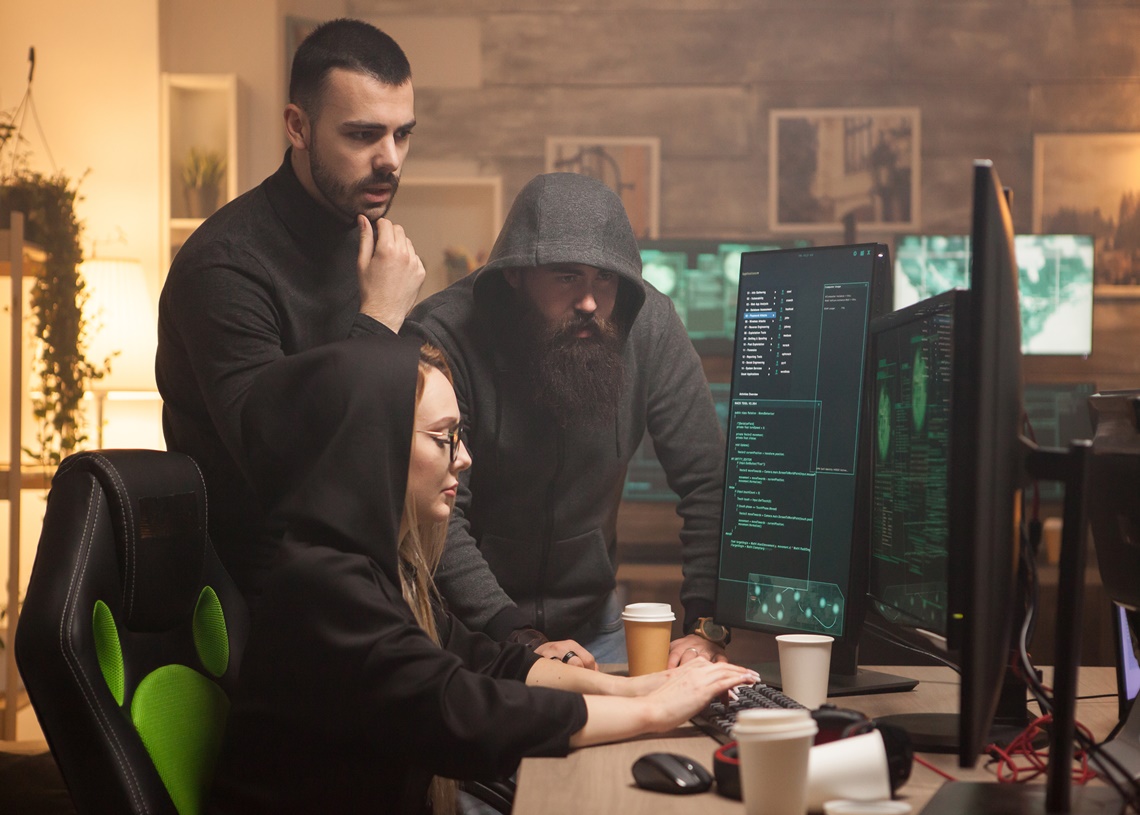Cyber attacks have remained an alarming threat for everyday individuals, private entities, as well as large government corporations for the longest time. However, never have we assumed that the technology built on simulation of human intelligence would be used to power cyber attacks and potentially herald them as the next catastrophe after COVID-19.
A report commissioned by Government Communications Headquarters (GCHQ), UK’s primary cybersecurity center, attempts to draw attention to artificial intelligence (AI) – a technology that is currently being used by both defending organizations as well as malicious actors.
AI against AI: Fighting cyber attacks
According to the report, it is time to fight fire with fire as cybercriminals are increasingly turning to AI to make cyber attacks more effective and devastating than before, thus urging cybersecurity and intelligence officials to brush up on their AI knowledge as that’s probably the only way to stay one step ahead of the criminals in a digitally-driven age such as this.
AI – once thought to be a concept that would struggle to find any takers in the future is now present everywhere around us. Today it is hard to imagine our phones, our cars, and even the internet without the AI influence. But as with any technology, AI, too, has a right side and a wrong side.
Shedding more light on the darker side of AI, a report published by the Royal United Services Institute for Defence and Security Studies (RUSI) states that the UK is more vulnerable to AI-empowered cyber attacks than before as there is evidence that shows malicious actors are exploring offensive AI-based capabilities.
Data privacy remains a concern
Very soon, even cybercriminal groups will be able to make the most of the developments surrounding the technology and use it for their own good, states the report. Moreover, it also points to another vulnerability resulting from using AI to store and use personal data to help mitigate a multitude of threats. These details could then be used to execute cyber attacks.
The research thus highlights the areas where intelligence officials could maximize the benefits of using AI, alleviate the risks associated with cyber attacks, and ultimately remain ahead of the game.
It focuses on the need to digitize the organizational processes, including streamlining highly cumbersome tasks such as data management and use AI to accurately identify and track any suspicious activity or potential malware in the system. This will help them to respond to security threats in real-time.
Will machine learning replace human judgment?
The paper also emphasizes the need to utilize another major yet lesser-explored sub-field of AI called augmented intelligence. It boasts highly sophisticated algorithms that support a range of rational analysis processes.
However, the ultimate question remains – will AI soon go on to replace the intelligence officials and cybersecurity personnel with its almost human-like intelligence and capabilities? According to RUSI, they have nothing to fear.
The goal of AI is to simplify complex and time-consuming tasks that otherwise necessitate human intervention. It cannot replace human decision-making powers, which are predictive of real-world behaviors and complex human emotions. Not every decision has to be logical or goal-based. Some need careful weighing of all alternatives which only a human brain can do, RUSI explains.
Data misuse in the time of COVID-19
Lastly, the report calls attention to another trending issue that’s been plaguing the minds of privacy-centric consumers across the globe – the misuse of data. It argues that while AI will undoubtedly enhance the capabilities of spy agencies and cybersecurity firms, it would also result in blurring of the fine line that exists between the amount of data collected and using it to track red flag behavior.
Indeed, deploying AI has its own set of challenges, but if we are to step up our efforts against modern-age cyber attacks, then AI is our only way out.
And while it is true that the technology is coming to the aid of millions of people across the globe who are confined to the four walls given social distancing requirements, some companies or criminal groups are allegedly leveraging the urgency by misusing data of users and causing cyber attacks.
More cases of data misuse
Recently, a Massachusetts online learning class was disrupted by Zoom bombing – a trending concept where hackers are illicitly gaining access to video conferencing rooms through publicly shared invite links.
Earlier this month, a well-known foreign exchange company based in London, Travelex, experienced a worst-of-its-kind ransomware attack that eventually resulted in the company shelling out over $3 million in Bitcoin.
How about big brother Blockchain?
Even though hackers are getting better at hacking, the ways to combat them are also improving very fast. In fact, we already have a nearly impenetrable technology, known as Blockchain, which can be used to protect our data from cyber-attacks and improve cybersecurity across industries. Our immediate concerns as parents are to secure our livelihood to support our nation’s economy and secondarily, to support initiatives that will further our children’s education.
The information age explosion of online data has brought with it lapses in security protocols that regularly expose our most sensitive information to malicious actors. Finding a reliable cybersecurity protocol, therefore, is more important than ever before. Industries across the board are latching onto new technology that promises to improve online security, including what could be the succor to our children as they pursue online education, big brother Blockchain.
Education poster child Blockchain Babe
How about education poster child Blockchain Babe? Her exploits in her rural community bear emulation. Not only for schools, but blockchain-based education has also been on the agenda of most higher education institutions for those in need of upskilling and educational programs that will help them further their career. Here’s the thing, despite this growing interest, little is known about the current state of knowledge and practice regarding the use of blockchain technology in education. Blockchain uses in education – could be the hard lesson we need to learn from Covid-19.








